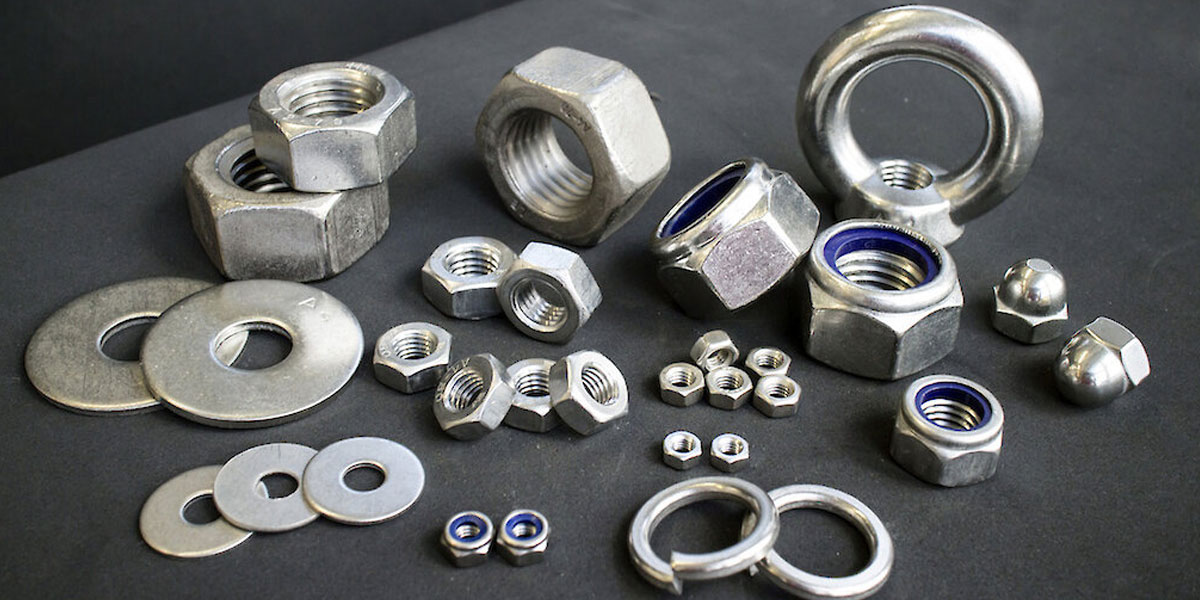Nuts and Bolts Suppliers are companies or businesses that provide and sell nuts and bolts. Nuts and bolts are hardware components used to fasten objects together. They typically consist of a bolt with a threaded shaft and a matching nut that screws onto the shaft, securing the objects together. Nuts and bolts come in various shapes, sizes, materials, and finishes to meet different fastening needs and are widely used in various industries such as construction, manufacturing, and maintenance.
All about Nuts And Bolts:
Nuts & Bolts Suppliers are simple yet essential mechanical fasteners used to secure two or more objects together. A bolt is a type of screw that typically has a smooth, cylindrical shaft with threads that allow it to be screwed into a matching threaded hole in a nut or a material such as wood or metal. The nut is typically a hexagonal or square block that fits around the threaded portion of the bolt. When tightened, the bolt draws the nut against the material being fastened, securely holding the objects in place.
Nuts and bolts are commonly used in construction, manufacturing, and maintenance, among other applications. They come in a variety of shapes, sizes, and materials, including steel, stainless steel, brass, and aluminum, and are available with different finishes such as zinc, galvanized, or black oxide. They can also be further categorized based on the type of thread they have, such as fine or coarse, and the type of fastening they are designed for, such as wood, metal, or concrete.
Overall, nuts and bolts play a crucial role in ensuring the stability and reliability of structures and machinery and are widely used in many industries and applications.
History of Nuts and Bolts:
The history of nuts and bolts dates back to the ancient times, when simple threaded fasteners made of wood or bone were used to secure objects together. The concept of using a threaded screw to fasten objects was developed further during the Renaissance, and the first metal nuts and bolts were produced in the late 1700s.
During the Industrial Revolution in the 1800s, the mass production of nuts and bolts facilitated the growth of the construction and manufacturing industries. The standardization of thread sizes and the development of new technologies, such as cold-forming, allowed for the efficient and cost-effective production of nuts and bolts on a large scale.
In the 20th century, the use of nuts and bolts continued to expand and diversify, with the development of new materials, such as stainless steel and titanium, and the application of nuts and bolts in industries such as aerospace and electronics. The introduction of new techniques, such as thread rolling and locknuts, further improved the performance and reliability of nuts and bolts.
Today, nuts and bolts remain a vital component in various industries and applications and continue to evolve to meet the changing needs and demands of the market.
If you want to Visit our site to Read More: https://yijinsolution.com/ about nuts and bolts visit our site.
Future of Nuts and Bolts:
The future of nuts and bolts is likely to shaped by advancements in manufacturing techniques and materials science. The use of 3D printing and other forms of additive manufacturing may lead to the creation of custom-fit, lightweight fasteners for specific applications. Additionally, the development of new, high-strength materials may lead to the production of more durable and corrosion-resistant nuts and bolts. The trend towards automation and robotics in various industries will also drive demand for advanced fastening solutions that can be integrated into automated systems. Ultimately, the future of nuts and bolts will determined by the needs and requirements of the industries that use them, as well as advances in technology and materials science.

